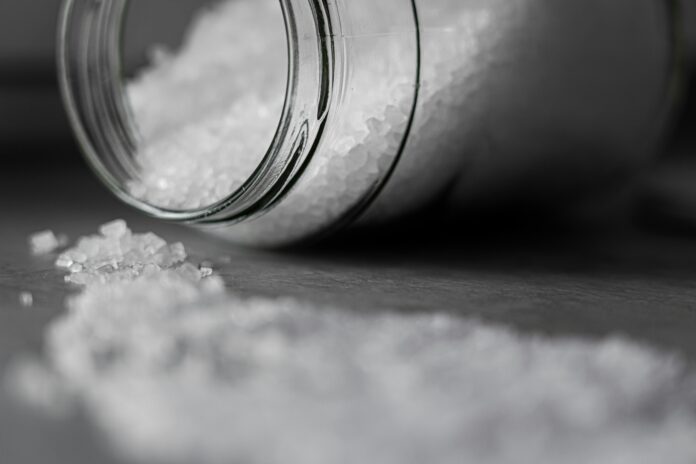Salt, a seemingly innocuous mineral, is deeply ingrained in our culinary culture. It enhances flavours, preserves food, and is ubiquitous in many cuisines worldwide. However, while salt may add zest to our meals, its excessive consumption poses significant health risks.
Despite its prevalence, there are compelling reasons to reconsider our relationship with salt and prioritize reducing its intake for overall well-being. In this article, we delve into five crucial reasons why staying away from salt can greatly benefit your health.
1. Hypertension and Cardiovascular Disease
High blood pressure, or hypertension, is a silent killer affecting millions worldwide. Excessive salt intake is a well-established contributor to hypertension. Sodium, the primary component of salt, disrupts the delicate balance of fluids in the body, leading to elevated blood pressure levels. Over time, persistently high blood pressure strains the heart and arteries, increasing the risk of heart disease, stroke, and other cardiovascular ailments.
According to the World Health Organization (WHO), reducing salt intake can effectively lower blood pressure levels, thereby reducing the incidence of cardiovascular events. By moderating salt consumption, individuals can mitigate the risk of developing hypertension and safeguard their heart health.
2. Kidney Health Concerns
The kidneys play a pivotal role in maintaining fluid balance and filtering waste products from the bloodstream. However, excessive salt intake can burden these vital organs and impair their function. When sodium levels in the body soar, the kidneys work overtime to excrete the excess salt. Prolonged strain on the kidneys can contribute to kidney damage, impaired renal function, and even chronic kidney disease (CKD) over time.
Individuals with pre-existing kidney conditions are particularly vulnerable to the adverse effects of salt. By reducing salt intake, individuals can alleviate the strain on their kidneys, promote optimal renal function, and mitigate the risk of kidney-related complications.
3. Bone Health Implications
While salt’s impact on blood pressure and kidney function is widely recognized, its repercussions on bone health are often overlooked. Excessive salt consumption has been linked to calcium depletion, a critical mineral essential for maintaining bone strength and density. High salt intake prompts the body to excrete calcium through urine, potentially compromising bone integrity and increasing the risk of osteoporosis, a condition characterized by brittle and fragile bones.
Inadequate calcium levels predispose individuals to fractures, skeletal deformities, and diminished bone mass. By moderating salt intake and adopting a calcium-rich diet, individuals can fortify their bones, reduce the risk of osteoporosis, and preserve skeletal health throughout their lifespan.
4. Gastric Health Challenges
Salt, while enhancing flavor, can wreak havoc on gastrointestinal health, particularly concerning the stomach lining. Excessive salt consumption has been implicated in the development and exacerbation of gastric ulcers, lesions that form in the stomach’s lining due to erosion and inflammation.
High salt intake promotes the secretion of gastric acid, which can erode the protective mucous lining of the stomach, rendering it vulnerable to ulcer formation. Individuals with pre-existing gastric conditions, such as gastritis or peptic ulcers, are advised to limit salt intake to alleviate symptoms and prevent further gastric complications.
5. Obesity and Weight Gain
In the battle against obesity and weight gain, salt emerges as a formidable adversary. While salt itself is calorie-free, its propensity to enhance flavor can lead to overconsumption of high-calorie, processed foods. Many processed and convenience foods, notorious for their high salt content, are laden with unhealthy fats, sugars, and empty calories.
Excessive salt intake may also disrupt the body’s natural thirst mechanisms, leading to increased fluid retention and bloating. This fluid retention can contribute to temporary weight gain and exacerbate feelings of discomfort and lethargy.
Conclusion
In conclusion, the pervasive presence of salt in our diets warrants careful consideration of its potential health implications. While salt undoubtedly adds depth and savor to our meals, its excessive consumption poses a myriad of health risks, ranging from hypertension and cardiovascular disease to kidney dysfunction and gastric ulcers. By embracing moderation and prioritizing whole, unprocessed foods, individuals can mitigate the adverse effects of salt and embark on a journey towards optimal health and well-being.















